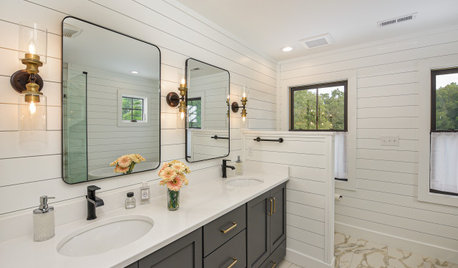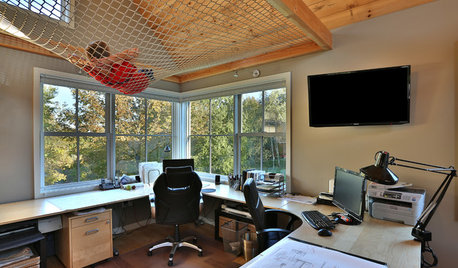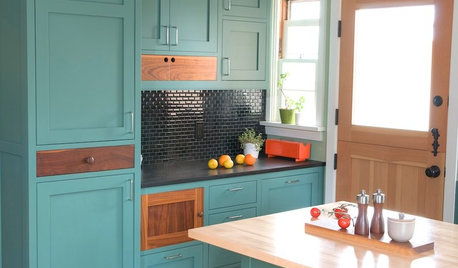Choosing the GC
busybme
15 years ago
Related Stories

REMODELING GUIDES10 Tips for Choosing and Working With a Builder
Make your construction experience a happy one by following these steps
Full Story
MATERIALSWhat to Ask Before Choosing a Hardwood Floor
We give you the details on cost, installation, wood varieties and more to help you pick the right hardwood flooring
Full Story
WORKING WITH PROSHow to Hire the Right Architect: Comparing Fees
Learn common fee structures architects use and why you might choose one over another
Full Story
BATHROOM WORKBOOKHow to Remodel a Bathroom
Create a vision, make a budget, choose your style and materials, hire the right pros and get the project done
Full Story
CONTRACTOR TIPS10 Things to Discuss With Your Contractor Before Work Starts
Have a meeting a week before hammers and shovels fly to make sure everyone’s on the same page
Full Story
MOST POPULARThe Right Way to Test Paint Colors
Here are 5 key steps to take to ensure you're happy with your wall paint color
Full Story
DESIGN PRACTICEHow to Set Up Your Design Studio at Home
Learn from an architect how to create a workspace that fuels your practice and feeds you inspiration
Full Story
KITCHEN DESIGNGet a Grip on Kitchen Cabinets With the Right Knobs and Pulls
Here's how to pair the right style, type and finish of cabinet hardware with your kitchen style
Full Story
KITCHEN CABINETSKitchen Cabinet Color: Should You Paint or Stain?
Learn about durability, looks, cost and more for wooden cabinet finishes to make the right choice for your kitchen
Full Story
DECORATING GUIDESNature’s Color Wisdom: Lessons on Green From the Great Outdoors
Green will grow on you for interiors when you look outside for ideas on how to use it
Full StoryMore Discussions









live_wire_oak
weedyacres
Related Professionals
Ewa Beach Kitchen & Bathroom Remodelers · Kuna Kitchen & Bathroom Remodelers · Lyons Kitchen & Bathroom Remodelers · Port Arthur Kitchen & Bathroom Remodelers · Sioux Falls Kitchen & Bathroom Remodelers · Wilson Kitchen & Bathroom Remodelers · Lomita Interior Designers & Decorators · Shorewood Interior Designers & Decorators · Boardman General Contractors · Bremerton General Contractors · Cottage Grove General Contractors · DeRidder General Contractors · Endicott General Contractors · New River General Contractors · Van Buren General ContractorsbusybmeOriginal Author
justnigel
bellamay
busybmeOriginal Author
plants4
futurasport
kitchenredo2
busybmeOriginal Author
mightyanvil
wws944
chisue
busybmeOriginal Author
allison1888
wws944
mightyanvil